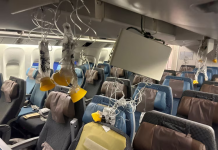International students in Australia are frustrated as they are spending hundreds of dollars on mandatory English language tests that expire after two years, according to a Guardian report.
The students, who have to take the test again even if they have completed degrees in English and lived in Australia for years, say there is a conflict of interest between the organisations that set the rules and administer the test.
The Australian government’s Department of Home Affairs accepts five English language tests for student visa applications, which includes IELTS, PTE, CAE, TOEFL and OET.
However, even after they have passed and finished their study in Australia, they have to retake language tests to enter some workplaces or undertake further study in Australia, such as Master’s or PhDs.
Yusef, a student who has had to pay $1,600 on four three-hour IELTS (International English Language Testing System) tests during his eight years in Australia, believes it is a conflict of interest.
“You have to again sit the test that universities have shares in… There is a definite conflict of interest,” he told The Guardian.
Sharing that one of his friends had to take the test 12 times, Yusef told the paper that paying $400 for the test burns a hole in the pocket, especially after spending tens of thousands of dollars to study in Australia.
Most international students from countries like India, Pakistan, China, take the $400 IELTS test, which is jointly owned by the British Council, Cambridge University Press and Assessment, and the Australian company IDP Education.
Australian universities expect students to get a minimum IELTS score of 6.0-6.5 or TOEFL score of 90 or PTE score of 72 or CAE score of 60-79 or above for admission.
Australia’s IDP has 19 public universities from the country as its shareholders, including Monash University, University of Melbourne, the University of Sydney and UNSW.
These universities are responsible for regulating IDP as its education agent, providing course selection assistance, visa and admission applications and accommodation advice.
A government inquiry into international education has said there should be more oversight of universities’ responsibility over education agents.
When it comes to IELTS, universities are regulating a company that has universities as shareholders.
The institutions are also reaping rewards from millions in profits generated by the IELTS test, the report, authored by Caitlin Cassidy, said.
“Forcing international students who already pay a fortune to study in Australia to repeat tests was yet another example of the way this country treats international students like cash cows to be milked,” Mehreen Faruqi, spokesperson of The Greens education, told The Guardian.
“Insisting on multiple such tests, even for students who have completed tertiary education in English, has xenophobic undertones and clearly disadvantages students who didn’t grow up speaking English.”
The Australian government says it uses English language requirements to “manage immigration risk” and “ensure visa holders are able to fully participate in the Australian community”.
However, during a recent migration review, the federal government had flagged that it wasn’t “entirely content” with the current English language arrangements, The Guardian said, quoting Phil Honeywood, chief executive of the International Education Association of Australia.
2023062730082




